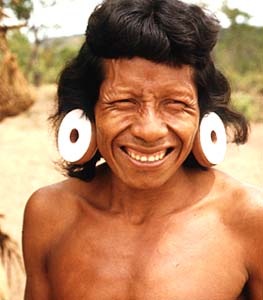 Many years ago I came across a video series called “Faces of Culture.” I still use segments of this anthropological series in my classes as I discuss kinship, economics, religion and worldview. Each segment begins with clips with faces of people around the world. One of the great perks of my job is being able to see the magnificent world that God created, the faces of culture.
Many years ago I came across a video series called “Faces of Culture.” I still use segments of this anthropological series in my classes as I discuss kinship, economics, religion and worldview. Each segment begins with clips with faces of people around the world. One of the great perks of my job is being able to see the magnificent world that God created, the faces of culture.When I started out in ministry I had no real knowledge, or interest, in people of other cultures. I was trained in mono-theology, mono-methodolgy and had every intention of living my life working in a mono-cultural pastorate. Not only did I not understand the world beyond my borders, I had little knowledge of “others” in my own community. My parallax of vision, as Tippett describes it, was culturally determined. It’s nothing short of a miracle that I have not lived my life in a mono-cultural existence.
Not all people in my profession have the privilege of experiencing the many faces of culture as I have, but everyone in my profession at least get an opportunity to see the other faces of culture God has created. I’ve seen the faces of the short, (Aka pygmies of Congo), the tall (Masai or Kenya), the brown (Quechua of Bolivia), the yellow (Lisu of southwest China) the oppressed (Vietnam) the liberated (Estonia), those who worship many gods (in Varanasi, India) the orthodox Christian (Russia and Romania), folk Muslims (Mali and Senegal) cultural Muslims (the Tatar of Russia) practicing Muslims (Turkey, Uzbekistan), follower of Buddha (Thailand and Cambodia) and the pure spirit worshipers called animists (Pokot of Kenya).
What I have learned through interacting with these faces of cultures, and others not listed, is profound. One, though we all are a part of the human race, we do not see the world the same. It took me a long time to shake me out of my mono-cultural theology to come to terms with this. Our values are different; our behavior is certainly different which means our conclusions are vastly different. The perception of God, sin, salvation, life and what happens after life is as varied as the faces of culture itself.
Second, through my profession I have learned to value others. Growing up ethnocentristic as well as fundamental, my first thirty years was spent believing that not only was I right, everyone who I came in contact with was both wrong and damned. Inherent to monoculturalism is their values and practices could be improved if they just became more like us. (Again, this is not just an American problem; it’s a disease of all monoculturalists in every country). The faces of culture have taught me that their way of doing things, their food and dress, even their religion, is valid. I may not agree with them, but through my exposure to God’s mosaic of peoples gives me insight on how, through their culture, He speaks uniquely to them. I am not a universalists, not all roads lead to heaven, but in all religion God can and does reveal Himself.
Third, the benefit of my profession is that I can celebrate and appreciate my own culture with a proper perspective. Though I no longer believe my country or my ethnicity is the best, I am confident it is every bit as valid as any other culture. I make no apologies for being an American. I can boast of my culture, not because of a narrow uniformed perspective, but because I have seen the other faces of culture and can claim my place as a part of God’s Divine design.


No comments:
Post a Comment